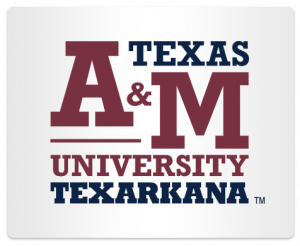If you are looking for the best affordable colleges in Texas for bachelor’s degrees, you have come to the right place. Enrollment in Texas private and public colleges and universities totaled 1.5 million students as of the fall semester in 2017, according to the Texas Almanac. Many of the top-ranked institutions of higher learning in Texas boast legacies that stretch back for centuries and are expected to grow between 2016 and 2026. As the home of some of the most ethnically diverse cities in the nation, including Dallas and Houston, students pursuing an affordable degree in Texas have plenty of opportunities to become global citizens. Some of the state’s top majors for undergraduates include history, the social sciences, business, health, and agriculture. Even if you are not sure of the major you intend to pursue, chances are there are several affordable colleges in Texas that will meet your academic needs and professional goals.
Featured Programs
Methodology
The following methodology was developed around affordability, class size, and student success, all important aspects of a best college. We strived to capture the balance between these three features of each school and awarded points as outlined below. To get our initial list of schools, we used the National Center for Education Statistics (NCES) website and conducted a search using the College Navigator tool for the colleges and universities that offer bachelor’s degrees in Texas. We then used each school profile on the College Navigator website to find the information needs for our three ranking categories. In the instance of a point-based tie, the school with the lowest tuition was placed on top.
Average Cost of Attendance
We get it. You are looking for a cheap and affordable college in Texas. However, as tempting as it may be, try to avoid choosing the most inexpensive school just for the sake of going easy on your wallet. Instead, base your decision on the quality of the school and what it has to offer. For this article, we ranked tuition according to how much an in-state student would pay for one year of tuition if he or she were to take 15 hours of courses per semester, according the NCES. Out-of-state tuition rates are also provided for your reference.
Points:
Under $7,500: 3 points
$7,500 to $15,000: 2 points
$15,001 and above: 1 point
Student-to-Faculty Ratio
A school’s student-to-faculty ratio provides insight into its educational setting as well as the size of its classes. While this number does not always necessarily represent how many students are in each class, it does tell a great deal about the quality of academic support and whether students will have the opportunity to develop close relationships with their professors and peers. Although there are benefits and drawbacks to both large state universities and small private colleges, for the purpose of this ranking, we determined that schools with the lowest student-to-faculty ratios and, therefore, the smallest classes would receive the highest number of points as indicated below, according to the information provided from NCES.
Points:
10:1 or less: 3 points
11:1 to 15:1: 2 points
Greater than 15:1: 1 point
Graduation Rate
The third and final metric on which we based points was each institution’s graduation rate. We used this number, provided from the NCES website, to measure student success and, inadvertently, student satisfaction. In other words, students who remained at the school in which they were enrolled, completed their program requirements and earned their degree were most likely satisfied with the school’s tuition rates, quality of faculty, and availability of academic support. On the other hand, students who left before finishing their coursework or earning their degree may have done so due to dissatisfaction with the program or school. Although low graduation rates can happen for any number of reasons, it is important to keep these figures in mind as you evaluate the quality of a program and school.
Points
More than 50 percent: 3 points
Between 30 percent and 50 percent: 2 points
Less than 30 percent: 1 point
Ranking 20 Best Affordable Colleges in Texas
20. The University of Texas Rio Grande Valley
Brownsville, Texas

Points: 5
School Website
Located in Brownsville, the University of Texas Rio Grande Valley is a public research university and a member of the University of Texas System. One of the cheapest colleges in Texas, UTRGV is also one of the largest institutions of higher learning in the nation to enroll mostly Hispanic students. Offering more than 120 affordable programs at the bachelor’s, master’s, and doctoral levels, UTRGV delivers a biliterate, bicultural, and bilingual learning experience. UTRGV boasts a 19:1 student-to-faculty ratio, personalized mentorship from world-renowned faculty, cutting-edge technology and facilities, and opportunities for research as well as a campus in the Rio Grande Valley that provides unparalleled outlets for everything from marine biology to cultural border studies to international business to aerospace.
In-State Tuition: $7,813
Out-of-State Tuition: $17,773
Student-to-Faculty Ratio: 19:1
Graduation Rate: 46 percent
19. Texas Woman’s University
Denton, Texas

Points: 5
School Website
Texas Woman’s University is a coeducational university located in Denton. Established in 1901, this cheap university in Texas has been coeducational since 1994, yet it is the largest state-supported institution of higher learning in the U.S. that is primarily geared toward women. Students seeking an affordable degree in Texas can choose from more than 75 different programs, including 91 undergraduate and graduate degrees. TWU is known for its leadership and contributions in the fields of business, the arts and sciences, nutrition, the healthcare professions, education, and nursing. Although many of TWU’s extracurriculars focus on women’s interests, it has expanded its offerings to be more inclusive to all students. TWU athletes compete in five sports, including volleyball, soccer, softball, gymnastics, and basketball. Students at this inexpensive university in Texas also participate in clubs and organizations as well as community service and leadership opportunities.
In-State Tuition: $7,796
Out-of-State Tuition: $17,756
Student-to-Faculty Ratio: 18:1
Graduation Rate: 43 percent
18. University of Houston-Clear Lake
Houston, Texas

Points: 5
School Website
The University of Houston-Clear Lake is a member of the four-campus University of Houston System. Founded in 1971, UHCL enrolls nearly 9,000 students across four academic colleges, offering a range of cheap undergraduate majors in public service leadership, interdisciplinary studies, fitness and human performance, computer engineering, geography, and healthcare administration. UHCL is also one of the most affordable colleges in Texas for space-related studies, and it has reportedly produced more than 12 astronauts. UHCL encourages student involvement and engagement, offering more than 90 student organizations as well as student government, leadership retreats, and other activities. This best-value school promotes personal growth and cultural diversity by celebrating and advocating for the concerns and needs of LGBTQ, international students, and women through cross-cultural collaborative events, training, and educational programs.
In-State Tuition: $7,002
Out-of-State Tuition: $19,954
Student-to-Faculty Ratio: 15:1
Graduation Rate: N/A
17. University of Houston-Downtown
Houston, Texas

Points: 5
School Website
The University of Houston-Downtown is one of four institutions that make up the University of Houston System. Founded in 1974 and enrolling more than 14,200 students from 74 countries, UHD is the second-largest institution of higher learning in Houston. UHD is comprised of the University College and four other colleges: Business, Sciences and Technology, Public Service, and Humanities and Social Sciences. Students seeking some of the cheapest degrees in Texas can choose from 44 undergraduate degrees, while eight master’s degrees are also available. This low-cost university reports that its top five most popular undergraduate degrees include interdisciplinary studies as a general degree and interdisciplinary studies with a concentration in education as well as accounting, criminal justice, and psychology. The school’s 19:1 student-to-faculty ratio allows faculty members to get to know their students by name. As one of the most affordable colleges in Texas, approximately 80 percent of students receive an average of $10,000 per year in loans, grants, and/or scholarships.
In-State Tuition: $6,500
Out-of-State Tuition: $16,460
Student-to-Faculty Ratio: 19:1
Graduation Rate: 20 percent
Featured Programs
16. University of Houston-Victoria
Victoria, Texas

Points: 5
School Website
The University of Houston-Victoria is one of the best-value colleges in Texas. Established in 1973, UHV enrolls more than 4,300 undergraduate and graduate students each year. UHV confers 70 affordable bachelor’s degrees, master’s programs, and concentrations in the fields of business administration, the arts and sciences, and human development, health professions, and education. Students of this cheap Texas college who have taken fewer than 45 hours of coursework or who are undecided in their major are housed in the University College where they receive help settling into college life, choosing a major, and transitioning into upper-division classes. Regardless of a student’s interest, there is no shortage of ways to get involved. UHV offers an endless array of outdoor adventures, recreational sports, leadership training, cultural events, and fun activities.
In-State Tuition: $6,491
Out-of-State Tuition: $16,451
Student-to-Faculty Ratio: 16:1
Graduation Rate: 19 percent
15. Midland College
Midland, Texas

Points: 5
School Website
With the lowest tuition on our list, Midland College is among the cheapest colleges in Texas. Midland College is a public institution that started out in 1972 as an independent junior college. Today, this low-cost college enrolls more than 7,400 students, offering rigorous affordable academic programs in areas such as computer information technology, business, social and behavioral sciences, public service and education, health and wellness, and energy, transportation and industry as well as STEM fields and arts, humanities, and communications. Campus life is comprised of intramural sports and a number of student clubs and groups that revolve around hobbies, interests, academics, and honors. Off-campus facilities include the Williams Regional Technical Training Center, the Petroleum Professional Development Center, and the Aviation Maintenance Technology Facility.
In-State Tuition: $4,290
Out-of-State Tuition: $5,550
Student-to-Faculty Ratio: 17:1
Graduation Rate: 22 percent
14. The King’s University
Southlake, Texas

Points: 6
School Website
The King’s University, located in Southlake, is an affordable evangelical university in Texas that was established in 1997 as The King’s College and Seminary. Affiliated with the Gateway Church, this best-value university offers 16 academic programs, including low-cost bachelor’s degrees in biblical and theological studies, biblical counseling, Christian ministries, intercultural studies, general Christian studies, media arts, and worship leadership. Students may create a portfolio for academic credit that demonstrates experience such as community service, military service, or work training. Outside of the classroom, TKU strives to create an environment in which students worship, serve, work, and live together as an educational community focused on developing a passionate relationship with God. Mission trips, chapel services, and community service are also an integral part of the TKU experience.
In-State Tuition: $15,000
Out-of-State Tuition: $15,000
Student-to-Faculty Ratio: 13:1
Graduation Rate: 33 percent
13. Arlington Baptist University
Arlington, Texas

Points: 6
School Website
Arlington Baptist University is a Christian college in Texas and the official school of the World Baptist Fellowship. Established as Fundamental Baptist Bible Institute in 1939, ABU is now one of the most affordable colleges in Texas. ABU aims to prepare students in the Bible by providing training for church-related ministries and professional development programs. ABU is comprised of four schools: the School of Ministry, School of Education, School of Business, and School of Interdisciplinary Programs. Each top-value program at ABU is built around a major in Bible, and areas of study include student, pastoral, and children’s ministry as well as music and worship, intercultural studies, interdisciplinary studies, education, business studies, and biblical counseling. The school’s location provides the perfect balance of isolation and proximity to the opportunities and conveniences of the Dallas-Fort Worth area.
In-State Tuition: $13,690
Out-of-State Tuition: $13,690
Student-to-Faculty Ratio: 9:1
Graduation Rate: 19 percent
12. University of North Texas
Denton, Texas

Points: 6
School Website
The University of North Texas is one of the most inexpensive colleges in Texas. Founded in 1890 as Texas Normal College and Teacher Training Institute, UNT enrolls nearly 38,000 students and offers 105 affordable bachelor’s, 88 master’s, and 37 doctoral degree programs through its 14 colleges and schools. The schools newest programs as of the fall semester of 2019 include four low-cost bachelor’s degrees: data science, general business, urban policy and planning, and Latino culture, economy, and policy. Students of this cheap university in Texas have many opportunities to unwind and stay in shape, including playing a pick-up game, cheering on the Mean Green, or taking a turn on the climbing wall at the Pohl Rec Center. UNT also hosts more than 1,000 theater productions, art exhibitions, and concerts each year.
In-State Tuition: $10,852
Out-of-State Tuition: $20,812
Student-to-Faculty Ratio: 26:1
Graduation Rate: 53 percent
11. Criswell College
Dallas, Texas

Points: 6
School Website
Established in 1970, Criswell College in Dallas is a Christian divinity school and liberal arts college that provides professional and ministerial higher education to students looking to serve as Christian leaders. This affordable college in Texas stands out with faculty members that are nationally renowned experts in their fields who often become lifelong friends and mentors to students. Students considering Criswell College can choose from multiple low-cost bachelor’s programs with majors including psychology, Christian ministry, biblical studies, education, and philosophy, politics, and economics. All undergraduate students are required to complete 42 hours of coursework in ministry, theology, and the Bible. Located in the heart of historic Old East Dallas, there are plenty of local area attractions, including White Rock Lake, the Museum District, the Bishop Arts District, and Deep Ellum.
In-State Tuition: $10,710
Out-of-State Tuition: $10,710
Student-to-Faculty Ratio: 8:1
Graduation Rate: 15 percent
10. Texas Tech University
Lubbock, Texas

Points: 6
School Website
Texas Tech University is one of the most affordable colleges in Texas. Established as Texas Technological College in 1923, the school is the flagship institution of the four-campus Texas Tech University System. The school enrolls more than 38,200 students from all 50 states and more than 100 countries, making it the seventh-largest institution of higher learning by enrollment in the state. Students can choose from more than 150 inexpensive areas of study through Texas Tech’s 12 colleges and schools, including programs in engineering, agricultural science, business, the arts and sciences, and architecture. This best-value school in Texas is home to 60 research institutes and centers, conducting research projects predominantly in the areas of wind energy, atmospheric sciences, nanophotonics, grid computing, pulsed power, and epidemiology. From football games in the fall and the Carol of Lights in December to Arbor Day’s spring flowers and the commencement in May, there is always something to experience, see, or do for Red Raiders.
In-State Tuition: $9,080
Out-of-State Tuition: $19,040
Student-to-Faculty Ratio: 20:1
Graduation Rate: 60 percent
9. University of Houston
Houston, Texas

Points: 6
School Website
The University of Houston is one of the high-value colleges in Texas and the flagship campus of the University of Houston System. Established in 1927, UH is the third-largest university in the state, enrolling more than 36,000 undergraduates and graduate students each year. Global experiences, leadership positions, hands-on opportunities, and rigorous coursework prepare students for the world, and inexpensive programs of study include bachelor’s, master’s, doctoral, continuing education, and online programs. UH offers its low-cost undergraduate majors through 15 academic colleges and an interdisciplinary Honors College, and popular areas of study include management information systems, industrial design, entrepreneurship, and biotechnology. With state-of-the-art facilities, world-class libraries, cutting-edge research centers, and nationally ranked programs, UH Cougars have the academic resources they need to succeed inside and outside of the classroom.
In-State Tuition: $8,913
Out-of-State Tuition: $21,273
Student-to-Faculty Ratio: 22:1
Graduation Rate: 59 percent
Featured Programs
8. Sam Houston State University
Huntsville, Texas

Points: 6
School Website
Established in 1879 as Sam Houston Normal Institute, Sam Houston State University is located in Huntsville. With a student body of more than 21,000, SHSU confers cheap undergraduate, graduate, and professional degrees as well as graduate and professional certificates in more than 170 areas of study through seven colleges and schools. Students looking for an affordable degrees in Texas can choose from traditional on-campus classes at three locations as well as online. SHSU has earned nationwide praise for its education, mathematics, fine arts, business, and criminal justice programs, and U.S. News & World Report ranks its online education degrees among the best in the nation. The 316-acre campus boasts any opportunities for involvement, including recreational and intramural sports, Greek life, and more than 250 student clubs and organizations.
In-State Tuition: $8,296
Out-of-State Tuition: $18,256
Student-to-Faculty Ratio: 21:1
Graduation Rate: 52 percent
7. Angelo State University
San Angelo, Texas

Points: 6
School Website
Angelo State University, founded as San Angelo College in 1928, is a public university and a designated Hispanic-Serving Institution located in San Angelo, Texas. It is the second-largest campus in the Texas Tech University System, enrolling more than 10,400 undergraduate and graduate students. Ranked by The Princeton Review as one of the best colleges in the U.S. annually since 2010, ASU confers more than 100 affordable majors and concentrations through its six colleges: Business, Science and Engineering, Graduate Studies and Research, Education, Arts and Humanities, and Health and Human Services. Students of this low-cost university in Texas can choose from 43 undergraduate degrees, 24 master’s programs, and one doctoral degree, and the 19:1 student-to-faculty ratio allows students to receive mentorship and individualized attention from ASU’s award-winning faculty. Campus life consists of 20 intramural and club sports teams, 15 NCAA Division II athletic teams, and more than 100 registered student organizations.
In-State Tuition: $7,436
Out-of-State Tuition: $17,396
Student-to-Faculty Ratio: 19:1
Graduation Rate: 34 percent
6. Texas A&M University-Texarkana
Texarkana, Texas

Points: 6
School Website
Texas Agricultural and Mechanical University-Texarkana is one of the cheapest colleges in Texas. Established in 1971, the school is comprised of two colleges that provide areas of excellence: the College of Arts, Sciences, and Education and the College of Business, Engineering, and Technology. A&M-Texarkana offers career-oriented studies, awarding low-cost undergraduate and graduate degrees in the areas of education, mathematics, engineering, technology, the arts and sciences, and business administration. Within these affordable degree programs, opportunities exist for hands-on learning environments, study-abroad programs, and collaborative research. Approximately 65 percent of students are eligible for financial aid, making the school’s low-cost bachelor’s in Texas that much more affordable. A&M-Texarkana sits on a 375-acre campus that was recently expanded and that offers more than 30 student groups and extracurricular activities.
In-State Tuition: $7,363
Out-of-State Tuition: $19,392
Student-to-Faculty Ratio: 11:1
Graduation Rate: 28 percent
5. Tarleton State University
Stephenville, Texas

Points: 6
School Website
Tarleton State University is a top-value college in Texas and a member of the Texas A&M University System. Enrolling around 13,000 students annually, Tarleton offers more than 100 top-value degrees at the associate, bachelor’s, master’s, and doctoral levels. Several of this low-costs school’s unique academic offerings include histotechnology, veterinary technology, geography and geographic information systems, and digital media studies. Tarleton emphasizes applied learning through experiential activities such as practicum experiences, internships, leadership-building initiatives, cultural enrichment, service learning, and research. In fact, the school is home to several research centers, including the Southwest Regional Dairy Center, the Texas Social Media Research Institute, and the Texas Institute for Applied Environmental Research (TIAER).
In-State Tuition: $7,292
Out-of-State Tuition: $17,252
Student-to-Faculty Ratio: 19:1
Graduation Rate: 46 percent
4. Texas A&M International University
Laredo, Texas

Points: 6
School Website
Texas A&M International University is a public university located in Laredo. Established in 1969, the school is a member of the Texas A&M University System that offers low-cost undergraduate and graduate degrees as well as certificates and online programs to more than 7,400 students. The school is comprised of the University College, College of Nursing and Health Sciences, College of Education, College of Arts and Sciences, and the A.R. Sanchez, Jr. School of Business. At TAMIU, students may pursue unique and inexpensive degrees in Texas such as international economics, a music instrumental track with various concentrations, kinesiology, communication disorders, and multidisciplinary studies with eight tracks. Students of this cheap university in Texas may also choose from four pre-professional programs in medicine, law, engineering, and dentistry. Student life at TAMIU consists of more than 100 student organizations and clubs as well as co-curricular leadership programs, athletics, and study-abroad programs.
In-State Tuition: $7,176
Out-of-State Tuition: $18,064
Student-to-Faculty Ratio: 22:1
Graduation Rate: 46 percent
3. Sul Ross State University
Alpine, Texas

Points: 6
School Website
Located in Alpine, Sul Ross State University is one of the top-value colleges in Texas. Established in 1917 as Sul Ross Normal College, a teaching institution, SRSU now confers affordable certificate, associate, bachelor’s, and master’s degrees to more than 2,100 students in its four academic colleges: Rio Grande College, College of Arts and Sciences, College of Agricultural and Natural Resource Management, and the College of Professional Studies. SRSU is involved in a number of partnerships, grant programs, and other ventures to promote culture, academic research, economic development, student opportunities, and academic enhancement.
In-State Tuition: $6,816
Out-of-State Tuition: $16,776
Student-to-Faculty Ratio: 12:1
Graduation Rate: 25 percent
2. The University of Texas Permian Basin
Odessa, Texas
 Points: 6
Points: 6
School Website
The University of Texas Permian Basin is a public university in Odessa and one of the cheapest colleges in Texas. Founded in 1973, the school enrolls more than 5,000 students, and it is experiencing rapid growth due to the oil boom happening in the Permian Basin. Students may pursue a variety of affordable undergraduate programs in areas such as clinical laboratory science, athletic training, multidisciplinary studies, petroleum engineering and mechanical engineering, industrial technology, and entrepreneurship with a concentration in management. Several pre-professional programs are also available in nursing, law, and health. This inexpensive school is home to the Parker Ranch House, a center that explores aspects of rural living and agriculture, and students may participate in horseback riding and other agriculture-focused activities.
In-State Tuition: $6,260
Out-of-State Tuition: $7,100
Student-to-Faculty Ratio: 20:1
Graduation Rate: 41 percent
1. Midwestern State University
Wichita Falls, Texas

Points: 7
School Website
Midwestern State University, located in Wichita Falls, is ranked as our best affordable college in Texas for a bachelor’s degree. MSU Texas is the only liberal arts-focused university in the state, offering low-cost undergraduate and graduate degrees in more than 60 areas of study. The school’s liberal arts program emphasizes ecological sustainability, community service, and social justice with an eye toward preserving human resources. U.S. News & World Report recognizes MSU Texas as one of the top schools in the nation with the cheapest out-of-state tuition. Located halfway between the Dallas-Fort Worth region and Oklahoma City, students can enjoy plenty of opportunities for research, internships, and community involvement as well as entertainment, dining, and cultural events.
In-State Tuition: $9,233
Out-of-State Tuition: $11,183
Student-to-Faculty Ratio: 18:1
Graduation Rate: 42 percent
Frequently Asked Questions
What are the Most In-Demand Careers in Texas for Graduates with a Bachelor’s Degree?
According to a study by CareerBuilder, renewable energy, nursing, and home health jobs top the list of fastest-growing occupations between now and 2023. Considering many Fortune 500 companies call North Texas home, including AT&T, McKesson, and Exxon, there will be plenty of opportunities due to high growth in social and community roles, manufacturing, technology, and healthcare. Below, we discuss some of these positions based on salary earnings.
The fastest-growing low-wage jobs and their change in demand include:
-
- Home Health Aides: 29 percent
- Personal Care Aides: 20 percent
- Veterinary Assistants and Laboratory Animal Caretakers: 18 percent
- Animal Caretakers: 16 percent
- Manicurists and Pedicurists: 15 percent
Next, the fastest-growing middle-wage jobs and their change in demand include:
-
- Wind Turbine Service Technicians: 50 percent
- Phlebotomists: 20 percent
- Non-oil and Gas Drilling: 20 percent
- Medical Assistants: 19 percent
- Substance Abuse, Behavioral Disorder, and Mental Health Counselors: 18 percent
Finally, the fastest-growing high-wage jobs and their change in demand include:
-
- Nurse Practitioners: 25 percent
- Physician Assistants: 24 percent
- Statisticians: 24 percent
- Special Education Teachers: 23 percent
- Marriage and Family Therapists: 23 percent
What are the Highest-Paying Jobs in Texas?
As you narrow down your options for the perfect college or university, it is also important to keep your future career in mind. Whether you know the specific occupation you will obtain or you have several jobs in mind, understanding the highest-paying occupations in Texas might sway your decision one way or another. We consulted the U.S. Bureau of Labor Statistics (BLS), who calculated data collected from all employers in all industry sectors across both nonmetropolitan and metropolitan areas in Texas. According to the Bureau, the annual mean wage across all occupations was $49,720 as of May 2018, the most recent data available. The top five highest-paying jobs were anesthesiologists, chief executives, surgeons, obstetricians and gynecologists, and all other specialties of dentists.
However, since this article focuses mainly on undergraduate degrees, we thought it would be helpful to determine the best-paying jobs for students either with a bachelor’s degree or for those who have earned an undergraduate degree and gained additional training, experience, or certification. Below are examples:
-
- Airline Pilots, Copilots, and Flight Engineers: $200,320
- Petroleum Engineers: $169,010
- Architectural and Engineering Managers: $167,280
- Computer and Information Systems Managers: $154,650
- Geoscientists, Except Hydrologists and Geographers: $150,140
- Financial Managers: $149,990
- Sales Managers: $148,000
- Chemical Engineers: $147,720
- Marketing Managers: $146,640
- Air Traffic Controllers: $133,260
What are the Best Schools in Texas for Bachelor’s Recipients?
Looking for the most affordable colleges in Texas? Whether you are looking for an institution with rigorous academic standards, a sports-crazed student population, or a school with a great party scene and lots of school spirit, Texas has plenty to offer. However, before selecting an institution, it is important to understand how your investment in your education will pay off both immediately after graduating and into the future. Therefore, we have compiled a list of five schools and provided salary information as well as data for each institution’s 20-year net return on investment (ROI), or the amount a student will earn with a bachelor’s degree over 20 years after graduating, according to PayScale. We ranked schools below from the highest ROI to the lowest ROI, and salary earnings were calculated using tuition rates for in-state students who completed an undergraduate program without financial assistance.
-
- 1. University of Houston
– 20-Year Net ROI: $479,000
– Early Career Pay: $55,000
– Mid-Career Pay: $100,900
- 1. University of Houston
-
- 2. Texas Tech University
– 20-Year Net ROI: $446,000
– Early Career Pay: $55,700
– Mid-Career Pay: $104,300
- 2. Texas Tech University
-
- 3. University of Houston-Victoria
– 20-Year Net ROI: $350,000
– Early Career Pay: $49,900
– Mid-Career Pay: $85,300
- 3. University of Houston-Victoria
-
- 4. Midwestern State University
– 20-Year Net ROI: $316,000
– Early Career Pay: $49,800
– Mid-Career Pay: $81,500
- 4. Midwestern State University
-
- 5. University of Texas of the Permian Basin
– 20-Year Net ROI: $304,000
– Early Career Pay: $49,100
– Mid-Career Pay: $86,800
- 5. University of Texas of the Permian Basin
All five of the above schools boast a 20-year net ROI of more than $300,000 as well as attractive starting and mid-career salaries, meaning that your financial investment is sure to pay off if you graduate with a bachelor’s degree from any of these institutions. Students who attend a college or university in the Lone Star State not only benefit from a rigorous academic experience but also enjoy the state’s unique culture, vibrant cities, Gulf Coast beaches, and amazing weather. Regardless of what draws you to the state, understanding the options for the best affordable colleges in Texas can help you ensure you are getting the most bang for your educational buck.
AS Staff
This concludes our ranking of the 20 best affordable colleges in Texas for bachelor’s degrees for 2020.
Other Rankings of Interest:
10 Most Affordable Online Colleges in Texas
25 Best Affordable Online Business Administration Degree Programs (Master’s)
40 Best Affordable One-Year Accelerated Master’s Degree Programs
50 Most Affordable Colleges with the Best Return
25 Best Affordable Online Mathematics/ Statistics Education Degree Programs (Master’s)
25 Most Affordable Master’s of Statistics Degrees
20 Best Affordable Online Colleges for Computer Networking Degree
10 Most Affordable Law Schools in the United States
15 Best Affordable Animation Degree Programs (Bachelor’s)
40 Best Affordable Pre-Med Degree Programs (Bachelor’s)
15 Best Affordable Film Studies Degree Programs (Bachelor’s)

 The Best Colleges
The Best Colleges The Lowest Costs
The Lowest Costs The Highest Returns
The Highest Returns